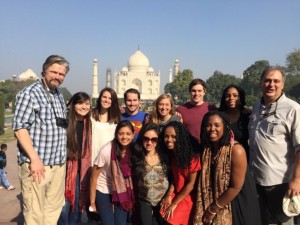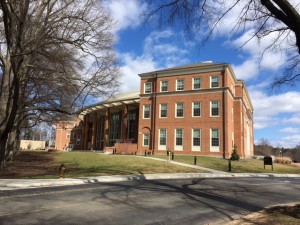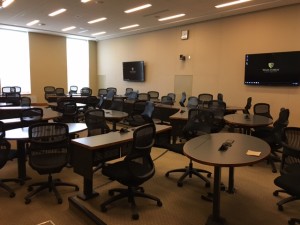Annabel Love Story #2
A panel discussion called Truth Lies and Politics: Ideology, Rationality, and Choice in an Election year was held in the Wait Chapel on February 16. Members from the Wake Forest community and people from the area came to listen to these panelists discuss important issues regarding the upcoming election.
Dr. Melissa Harris Perry, Professor of Politics and International Affairs at Wake Forest, was the moderator for the event. She challenged the panelists by sparking conversation regarding climate change, the effect of media, political gridlock, and ideological differences.
Two out of the three panelists could not attend the discussion due to weather conditions and airfare. Jed Purdy and Keith Payne filled in the places for Dr. Anthony Appiah and Dr. Dan Kahan. According to the office of sustainability, the two substitute panelists were connected to faculty members that were familiar with their work.
Hannah Slodounik from the office of sustainability said, “it was a quick change of events and was not what we planned, but the outcomes from the event were exactly what we were hoping for.”
The discussion started with talking about polarization and whether or not it is problematic to see the world in profoundly different ways. Jed Purdy a Professor of Law at Duke University argued, “the constitution is composed of our long history of disagreeing over the meaning of equality and the meaning of liberty. In democracy you have to respect the competing voices because that is what national elections are all about.”
Dr. Lucas Johnston, a religion professor at Wake Forest, said that he “enjoyed how the conversations kept evolving and reflecting on bigger issues.” He mentioned that he appreciated Naomi Oreskes and her insights on climate change.
Naomi Oreskes Professor of the History of Science at Harvard University argued, “Climate change is not a scientific disagreement it is a political disagreement.” Climate change can be scientifically proven but it is a political disagreement about what to do about it. Her research focuses on the earth and environmental sciences and has noticed that if we don’t reduce carbon emissions we are going to have a serious problem.
Dr. Keith Payne, Professor of Psychology and Neuroscience at University of North Carolina mentioned “no one wants to have a conversation with people that want to change your worldview. However, we need to start talking more about politics, religion, and money around the dinner table with the Uncle that doesn’t agree with us and start talking about these issues with mutual respect.”
Stephanie Eagan, a Wake Forest student with a Politics and International Affairs major, enjoyed that the panel was interactive among panelists and between the panelists and the audience. “I thought that they did an impressive job in encouraging us to think of important issues in a new light and I enjoyed the conversations that arose with my friends after the event.”









